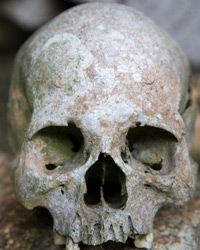Turn on a TV crime drama, read the headlines to some of the biggest stories in the nation or happen upon a cordoned-off crime scene, and you'll get an idea of why coroners and medical examiners are not only important in society, but also pretty cool to boot.
The duty of a coroner is to determine the truth about how a person died. This not only helps determine whether further criminal investigation is necessary, but it also helps bring answers and closure to grieving families.
Advertisement
Some coroners and medical examiners perform autopsies themselves; other times, they simply study the findings of an autopsy. Additionally, they must determine a time of death, which aids not only police, but also prosecutors as they try to hang a murder conviction on a killer.
Coroners and medical examiners are basically the same thing, except coroners are elected and, as such, don't need a medical degree. Medical examiners are appointed and are normally required to have a medical license.
While coroners may give some people the creeps, they actually have really cool jobs. And as you'll see in the following pages, it's good work if you can find it.





